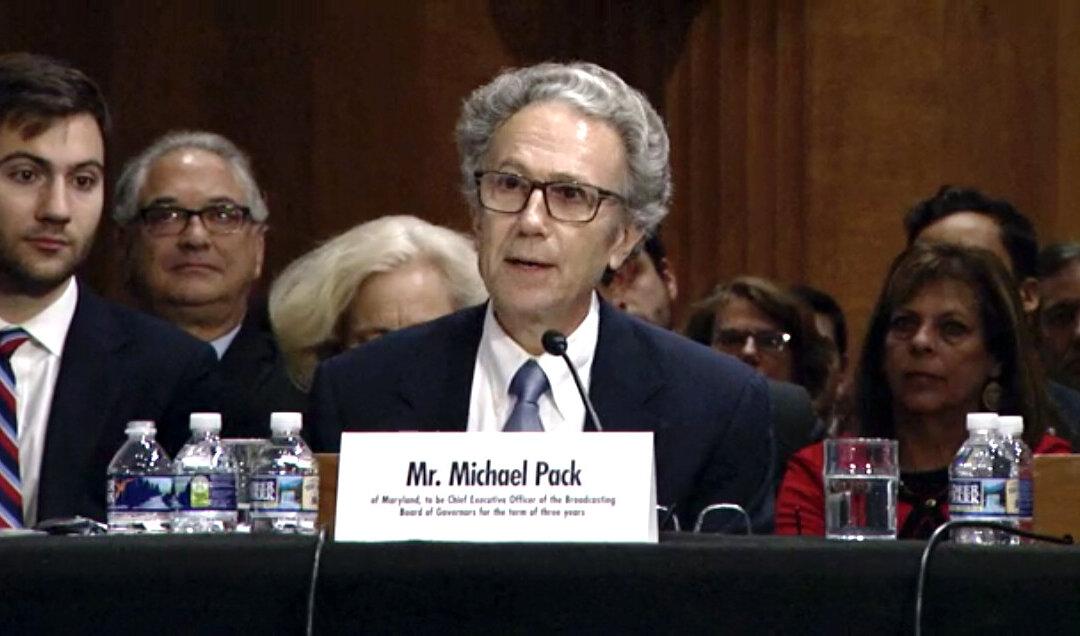The Senate voted on Thursday to confirm President Donald Trump’s nominee, Michael Pack, to run the U.S. Agency for Global Media (USAGM), which oversees the Voice of America (VOA) radio network and other U.S. government-funded international broadcasters.
The vote of 53-38 comes after two years of opposition from Senate Democrats. The Republican-led Senate voted almost entirely along party lines, with Sen. Joe Manchin (D-W.Va.) being the only Democrat to vote in favor of the nomination. Trump had nominated Pack two years ago to lead the USAGM—formerly called the Broadcasting Board of Governors.




